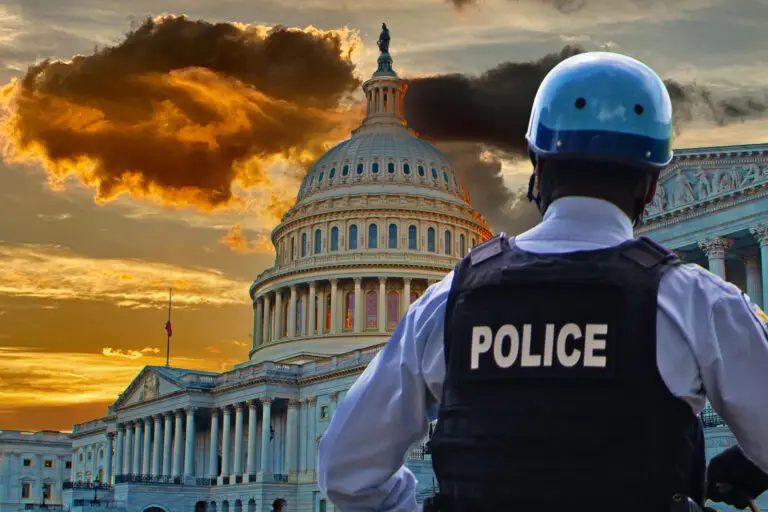
The United States Congress and the United States Supreme Court have their own police departments. Both are separate from the Executive Branch.
Federal law enforcement agencies exist in every Cabinet level department of the Executive Branch of the United States Government.
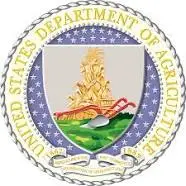
Department of Agriculture
Federal Law Enforcement
Forest Service Law Enforcement and Investigations. Uniformed law enforcement officers enforce Federal laws and regulations governing National Forest Lands and resources. Officers carry firearms, defensive equipment, make arrests, execute search warrants, complete reports and testify in court. Special agents are criminal investigators who conduct investigations concerning possible violations of criminal and administrative provisions of the Forest Service. They are normally plain clothes officers who carry concealed firearms, and other defensive equipment and make arrests. (Wikipedia)

Department of Commerce
Federal Law Enforcement
Bureau of Industry and Security (BIS) Office of Export Enforcement (EE). OEE special agents are sworn law enforcement officers. They have authority to make arrests, execute search warrants, serve subpoenas and seize goods about to be illegally exported. OEE investigations are initiated on information and intelligence from a variety of sources. OEE works with the Department of Justice and the Office of Chief Counsel for Industry and Security. (Wikipedia)
National Oceanic and Atmospheric Administration Fisheries Office of Law Enforcement (NOAA OLE). NOAA’s OLE protects marine wildlife and habitat by enforcing domestic laws and supporting international treaty requirements. OLE special agents, law enforcement officers, as well as investigative and mission support staff provide stakeholders with compliance assistance. OLE jurisdiction generally covers ocean waters between 3 and 200 miles offshore and adjacent to all U.S. states and territories. The OLE jurisdiction covers 3.36 million square miles of open Ocean, and 95,000 miles of U.S. coastline. Included are 14 National Marine Sanctuaries and 5 Marine National Monuments. OLE conducts enforcement activities through patrols both on and off the water as well as tracking ships electronically. (Wikipedia)
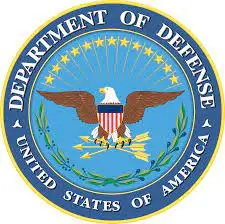
Department of Defense
Federal Law Enforcement
Air Force Office of Special Investigations. OSI is a federal law enforcement and counterintelligence agency operating through home station and deployed missions. OSI agents receive elite investigative training, and they work with state-of-the-art technology. There are more than 1,700 special agents and 700 staff, and they conduct investigations including cybercrimes. OSI special agents are a mix of active duty officer and enlisted personnel, civilians, and reservists. (Wikipedia)
Army Criminal Investigation Division (CID). Are you a college graduate considering a career as a law enforcement officer? If so, check out the CID Direct Accessions Program. The program is open to applicants interested in active duty positions within the U.S. Army Criminal Investigation Division. To be considered for the program, you must have a bachelor’s degree or higher in Criminal Justice, Forensic Science, Computer Science, Computer Forensics, Digital Forensics, Legal Studies, Accounting, Finance, Psychology or Biology. After completing U.S. Army Basic Combat Training, you must complete 31B Military Police One Station Unit Training and the CID Special Agent Course. (Wikipedia)
Defense Criminal Investigative Service (DCIS). DCIS special agents perform criminal and civil investigations involving companies, persons and property. As law enforcement officers, special agents conduct arrests, searches and seizures, and they collect physical and digital evidence. Special agents interview witnesses, suspects, and others, and they testify before Grand Juries, trial courts, or other legal proceedings. Agents carry firearms. (Wikipedia)
Department of Defense Federal Law Enforcement
Defense Intelligence Agency Police. DIA depends on officers in this specialty to perform law enforcement and force protection activities. The uniformed police engage in protective functions such as hazardous materials response, antiterrorism assessments, and special response team operations. Police officers specialize in one of these functional areas: • Canine Services. • Law Enforcement Training. • Operations. • Physical Security. • Special Response. • Threat Management. Designated as special agents, officers in this specialty perform investigations to prevent insider threats and review criminal matters. (Wikipedia)
Defense Logistics Agency Police. DLA Police are federal law enforcement officers providing around-the-clock force protection, antiterrorism, and security operations through police services. They provide facilities security, emergency response, and protective countermeasure programs for Agency installations. (Wikipedia)
Department of the Army Civilian Police (DACP). DACP personnel are responsible for law enforcement on U.S. Army owned facilities, properties and other military assets. DACP officers work uniformed and plainclothes assignments. (Wikipedia)
Department of the Navy Police. Civilian police officers execute region and installation federal law enforcement, force protection, physical security, and antiterrorism missions. Officer training emphasizes tactics, techniques, and procedures to deter, detect, delay and defend against terrorism to protect life and property. (Wikipedia)
Department of Defense Federal Law Enforcement
Marine Corps Civilian Police. These federal police officers provide security and policing to Marine Corps establishments alongside Marine Corps military police officers. The Marine Corps Police Academy provides training in traditional law enforcement functions. Training includes police patrol, response to calls for service, and traffic management. (Wikipedia)
National Security Agency Police. NSA Police officers provide armed and uniformed security, force protection and federal law enforcement functions. They support the agency’s mission, assets, personnel and facilities. NSA Police conduct patrol in marked vehicles. K9’s are utilized for screening of mail, vehicles and cargo entering NSA facilities. (Wikipedia)
Naval Criminal Investigative Service. NCIS is a civilian law enforcement agency. It is responsible for investigating felony crime, preventing terrorism and protecting secrets for the Navy and Marine Corps. NCIS is comprised of about 2,000 personnel, with more than 1,000 serving as federal special agents. NCIS is unique among U.S. military criminal investigative organizations. It is headed by a civilian law enforcement professional who reports directly to the Secretary of the Navy. Today, NCIS operates in approximately 191 locations, in more than 41 countries. (Wikipedia)
Pentagon Force Protection Agency – Pentagon Police. The PFPA seeks highly qualified applicants to serve as uniformed federal law enforcement police officers. Officers serve at the Pentagon, and the Raven Rock Mountain Complex in Adams County, PA. They provide patrol, response, and investigation of criminal activity. The PFPA uses the website USAjobs.gov for all Agency hiring. All persons interested in working for the Pentagon Police must first visit the USAjobs website and create a profile. (Wikipedia)

Department of Education
Federal Law Enforcement
Office of Inspector General (OIG). OIG conducts criminal and civil investigations involving ED programs, operations, and funding. OIG special agents investigate suspected fraudulent activities by ED employees, contractors, grant recipients, school officials, teachers, and students. Special agents investigate cybercrime affecting and using ED information technology systems. OIG special agents exercise full law enforcement authority. Special agents carry firearms, take sworn statements, and they apply for and execute search and arrest warrants. (Wikipedia)
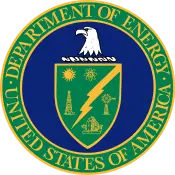
Department of Energy
Federal Law Enforcement
Defense Nuclear Security (DNS) – Federal Protective Forces (FPF). The FPF is responsible for defending Department of Energy sites where Category I special material is stored. FPF personnel are heavily armed federal law enforcement officers possessing limited arrest authority. They may make probable cause arrests while on duty for specific federal crimes related to nuclear material and government property. (Wikipedia)

Department of Health and Human Services
Federal Law Enforcement
Office of Inspector General (OIG). The OIG investigates criminal activity for HHS. The special agents who work for OIG are law enforcement officers with special skills in investigating white collar crime. Their area of expertise is the investigation of Medicare and Medicaid fraud and abuse. HHS-OIG agents also provide protective services to the Secretary of HHS and other department executives. (Wikipedia)
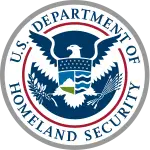
Department of Homeland Security
Federal Law Enforcement
Coast Guard Investigative Service (CGIS). The CGIS, as it is known today, came into existence in 1915. In 1790, Secretary of State, Alexander Hamilton, asked for and received 10 “Revenue Cutters.” They would be used to guard the nation’s coast against smugglers. Since then, the Coast Guard has been the principal agency for federal law enforcement on the high seas. The Coast Guard also enforces federal law on navigable waters of the United States. Today, CGIS special agents conduct investigations, carry firearms, obtain and execute warrants and make arrests. (Wikipedia)
Customs and Border Protection (CBP). CBP secures America’s borders at and between ports of entry by stopping inadmissible people and illicit goods. CBP’s offices of Field Operations, Border Patrol, and Air and Marine Operations represent the largest federal law enforcement agency. The United States Border Patrol is the mobile, uniformed law enforcement arm of U.S. Customs and Border Protection. (Wikipedia)
Department of the Air Force Police (DAF Police). DAF Police are uniformed civilian federal law enforcement officers. They have authority to enforce laws and make arrests on Air Force and Space Force controlled property. DAF Police operate throughout the United States under the direction of the installation commanders and the Air Provost Marshal. (Wikipedia)
Department of Homeland Security Federal Law Enforcement
Federal Air Marshal Service (FAMS). The Federal Air Marshal Service is a risk and intelligence based federal law enforcement organization. It proactively mitigates threats involving the nation’s transportation system, and it provides uniquely skilled, multifaceted resources for national security priorities. Federal Air Marshals are deployed to assess, address and mitigate potential risks and threats to transportation and travelers. (Wikipedia)
Federal Protective Service – Uniformed Police. The FPS is a federal law enforcement agency that provides integrated security and law enforcement services. The Federal Protective Service’s area of responsibility covers the continental United States and U.S. territories. Headquartered in Washington, D.C., FPS is divided into 11 regions, and it is responsible for protecting over 9,000 Federal Facilities. Regional headquarters are located in metropolitan areas across the country. Approximately 200 field offices and 3 Mega Centers provide responses to over 534,000 calls for service annually. (Wikipedia)
Immigration and Customs Enforcement (ICE). ICE conducts criminal and civil federal law enforcement governing border control, customs, trade and immigration. The agency has more than 20,000 law enforcement and support personnel. They work from more than 400 offices in the United States and around the world. (Wikipedia)
Secret Service. The Secret Service was formed in 1865 to protect the nation from counterfeit currency. Today, Secret Service special agents investigate financial crimes, and they provide executive protection to the President, Vice President and others. The Uniformed Division’s federal law enforcement officers are tasked with protecting venues secured for persons under Secret Service protection. (Wikipedia)

Department of Housing and Urban Development
Federal Law Enforcement
Office of Inspector General (OIG) (OI). The Office of Investigation (OI) conducts criminal and administrative investigations to prevent fraud, waste, and abuse in HUD programs. OI has 7 regional offices and 39 field offices. OI’s investigators exercise statutory federal law enforcement authority to make arrests, execute search warrants, and serve subpoenas. Investigators collaborate with forensic auditors, information technology specialists, investigative analysts, and administrative support staff. (Wikipedia)
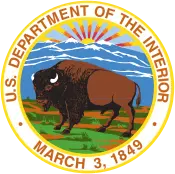
Department of the Interior
Federal Law Enforcement
Department of the Interior Police. DOI police officers conduct federal law enforcement on public lands from horseback to modern police aviation. They are represented across the Bureaus of Indian Affairs; Reclamation, and the National Park Service. DOI officers project traditional police methods of patrol and enforcement. (Wikipedia)
Fish & Wildlife Service – Office of Law Enforcement (OLE). OLE is the federal law enforcement agency responsible for enforcing laws, regulations and treaties that protect wildlife and plant resources. The OLE is composed of special agents, wildlife inspectors, intelligence analysts, forensic scientists, information technology specialists, and support staff. OLE combats global wildlife trafficking, and they protect the nation’s fish, wildlife and plants from exploitation, hazards and habitat loss. They facilitate and expedite the legal trade, and they enhance management accountability. (Wikipedia)
United States Park Police (USPP). The USPP is one of the oldest uniformed federal law enforcement agencies in the United States. The United States Park Police was created by President George Washington in 1791. The Force functions as a unit of the National Park Service with jurisdiction in all Federal parks. U.S. Park Police officers are located in the Washington, DC, New York City, and San Francisco metropolitan areas. They investigate and detain persons suspected of committing offenses against the United States. (Wikipedia)
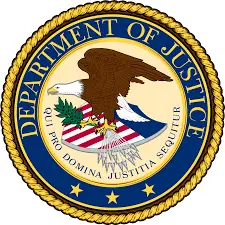
Department of Justice
Federal Law Enforcement
Bureau of Alcohol, Tobacco, Firearms and Explosives (ATF). ATF is a federal law enforcement agency tasked with investigating the illegal use and trafficking of firearms. They investigate the illegal use and storage of explosives, acts of arson and bombings, and acts of terrorism. ATF addresses the illegal diversion of alcohol and tobacco products. In 1863, tax evasion and organized crime activities became widespread. Congress authorized the hiring of three detectives to investigate alcohol tax evaders. This act is the first coordinated effort between tax collection and law enforcement. Those three detectives were the forerunners to today’s ATF agent. (Wikipedia)
Drug Enforcement Administration (DEA). The DEA was established in 1973 as the federal law enforcement organization in charge of enforcing the controlled substances laws of the United States. Today, thousands of DEA employees located in hundreds of offices across the country and around the world fulfills DEA’s mission. DEA experts include special agents, diversion investigators, forensic scientists, and intelligence research specialists. The DEA regulates the manufacture and distribution of controlled pharmaceuticals and listed chemicals through the Diversion Control Division. They coordinate with other enforcement organizations for the collection, analysis and dissemination of drug related intelligence. (Wikipedia)
Department of Justice Federal Law Enforcement
Federal Bureau of Investigation (FBI). The FBI employs more than 35,000 people. They include special agents and support professionals such as intelligence analysts, language specialists, scientists, and information technology specialists. The FBI represents federal law enforcement around the globe. With its Headquarters in Washington, D.C., the FBI has 56 field offices located in major cities throughout the United States. There are about 350 satellite offices called resident agencies in cities and town across the nation. More than 60 international offices called legal attaches exist in U.S. embassies worldwide. (Wikipedia)
FBI Police. The FBI maintains a uniformed police force that conducts traditional police functions. FBI police officers serve as first responders to any emergency that may arise. They maintain access points at FBI facilities, and they patrol the grounds, buildings and surrounding areas. They’re responsible for investigating and reporting suspicious persons and activities, maintaining order, protecting citizens and promoting good community relations. FBI Police Officers also travel across the country in support of FBI operations and special events. (Wikipedia)
United States Marshalls Service (USMS). The Judicial Security Division (JSD) ensures the safe and secure conduct of judicial proceedings. Marshalls protect federal judges, jurors, and other members of the federal judiciary. There are 94 judicial districts and 12 circuits of the U.S. Court of Appeals. USMS protects more than 2,700 sitting judges and approximately 30,300 federal prosecutors and court officials. The USMS manages the Witness Security Program. Witnesses and their families typically get new identities with authentic documentation. Formed in 1789, the USMS is the oldest federal law enforcement agency in the United States. (Wikipedia)
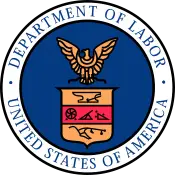
Department of Labor
Federal Law Enforcement
Office of Inspector General (OIG). The OIG’s Office of Investigations (OI) conducts criminal, civil, and administrative investigations relating to fraudulent activity. For example, unemployment insurance investigations focus on fictitious employer schemes. They involve the creation of companies that exist only on paper. The companies have no employees, business operation, or normal expenses. OI also investigates well organized street gangs who steal identities and fraudulently apply for UI benefits. Other investigations include medical provider fraud; labor racketeering, and labor trafficking. (Wikipedia)

Department of State
Federal Law Enforcement
Bureau of Diplomatic Security (DSS). The Diplomatic Security Service is tasked with securing diplomacy and protecting the integrity of U.S. travel documents. The DSS has the largest global reach of any U.S. federal law enforcement agency. It has offices in 29 U.S. cities and in more than 270 locations around the world. DSS has more than 2,500 special agents, security engineering officers, security technical specialists, and diplomatic couriers working and traveling worldwide. (Wikipedia)

Department of Transportation
Federal Law Enforcement
Department of Public Safety – United States Merchant Marine Academy (USMMADPS). The Academy’s security force is comprised of federal law enforcement officers and federal security guards. The force staffs the gatehouse, and it provides patrols on foot, and in marked and unmarked vehicles. DPS has aid agreements with the police departments of the Village of Kings Point and Nassau County Police Departments. It receives investigative support from the Federal Bureau of Investigation. (Wikipedia)

Department of the Treasury
Federal Law Enforcement
Bureau of Engraving and Printing Police. The BEP police are uniformed federal law enforcement officers. They enforce federal and municipal laws and Department of Treasury/BEP security rules and regulations in and around BEP facilities. (Wikipedia)
Internal Revenue Service – Criminal Investigation (CI). CI investigates potential criminal violations of the Internal Revenue Code and related financial crimes. IRS special agents follow strict procedures to initiate an investigation and recommend prosecution to the Department of Justice. Procedures include approval by several IRS officials to ensure investigations are based on factual evidence. That evidence must show that tax fraud or another financial crime has occurred.
The Whiskey Rebellion in 1794 saw the first serious challenge to the government’s revenue laws. The rebellion set up a clash between citizens and federal law enforcement officers. The government prevailed, but at a cost of $1.5 million to American taxpayers. Value of $1,000.000 from 1790 to 2022 – $1,000,000 in 1790 is equivalent in purchasing power to about $31,424,891.30 today. That’s an increase of $30,424,891.30 over 232 years. The dollar had an average inflation rate of 1.50% per year between 1790 and today, producing a cumulative price increase of 3,042.49%. (Wikipedia)

Department of Veterans Affairs
Federal Law Enforcement
Department of Veterans Affairs Police (VA Police). The VA Police serve as a protective uniformed police force to prevent crime, maintain order and investigate crimes. VA Police are an armed federal law enforcement agency that operates in and around Veterans Affairs facilities. (Wikipedia)

United States Congress
United States Capitol Police (USCP). The primary function of the USCP is protecting the Congress – its Members, employees, visitors and facilities. On May 2, 1828, Congress passed an Act expanding police regulations for the City of Washington to include the Capitol. It is on this date that the USCP commemorates its founding. Today, the USCP is a federal law enforcement agency with jurisdiction throughout the District of Columbia. While performing protective functions, Capitol Police have jurisdiction throughout the entire United States. USCP is the only full service federal law enforcement agency appointed by the legislative branch of the federal government of the United States. (Wikipedia)
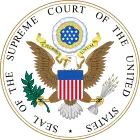
Supreme Court of the United States
Supreme Court of the United States Police. The Supreme Court Police is a federal law enforcement agency enforcing federal and District of Columbia laws and regulations. It protects the Supreme Court, the justices, employees, guests and visitors. It enforces regulations governing the Supreme Court Building and grounds prescribed by the Marshal and approved by the Chief Justice. (Wikipedia)
Independent Federal Law Enforcement Agencies
Amtrak Police Department (APD). APD is a federal law enforcement civilian police force of more than 450 sworn and civilian personnel. They provide security for customers and infrastructure for over 21,400 miles of railroad routes. APD partners with federal, state, local, rail and transit police agencies to provide police presence at Amtrak stations and rights-of-way. (Wikipedia)
Central Intelligence Agency Police (CIA Police). CIA police officers protect Agency personnel, facilities and information through the enforcement of federal laws and Agency regulations. Police Officers exercise full federal law enforcement authority, including making arrests and enforcing traffic laws in Agency jurisdiction. They are the primary first responders to all emergencies on Agency facilities. (Wikipedia)
Federal Reserve Police. Federal Reserve officers have the same authority as other federal law enforcement officers while on duty, regardless of geographic location. (Wikipedia)
Indepenent Federal Law Enforcement Agencies
Tennessee Valley Authority Police (TVA Police). The TVA Police is a commissioned federal law enforcement agency that exists to protect TVA’s employees, visitors and physical assets. The Tennessee Valley Authority provides electricity for 153 local power companies serving 10 million people. It also serves 57 large industrial customers and federal installations. (Wikipedia)
United States Postal Inspection Service (USPIS). The Postal Inspection Service has the oldest origins of any federal law enforcement agency in the United States. In 180l, the position of special agent was adopted. The Postal Inspection Service was the first to use the title of special agent for its officers. Congress changed the title to inspector in 1880. Today, postal inspectors are sworn federal law enforcement officers who carry firearms, make arrests, and serve federal search warrants and subpoenas. (Wikipedia)
United States Postal Police (PPO). The U.S. Postal Security Force includes uniformed Postal police officers (PPO). Security Force operations are under the administrative control of the United States Postal Inspection Service (USPIS). (Wikipedia)
Related Content for Federal Law Enforcement
Advertisements

